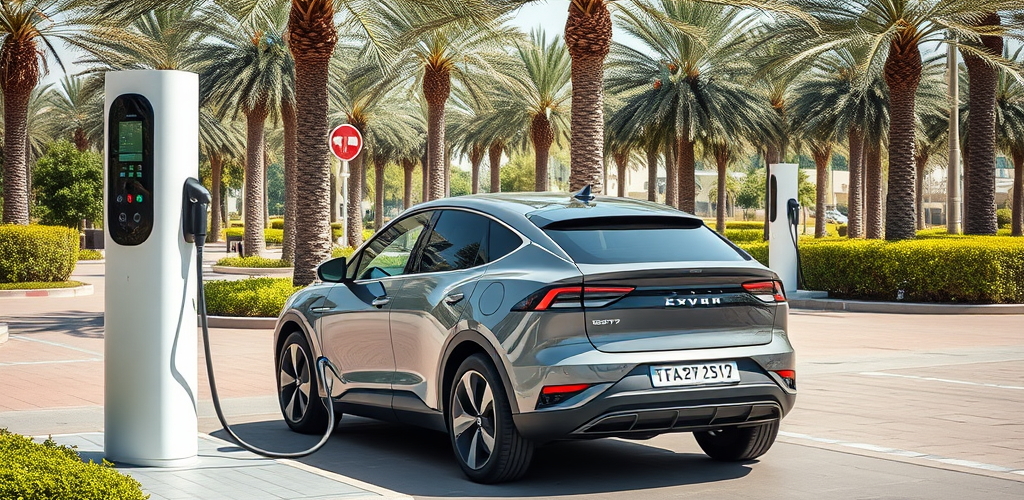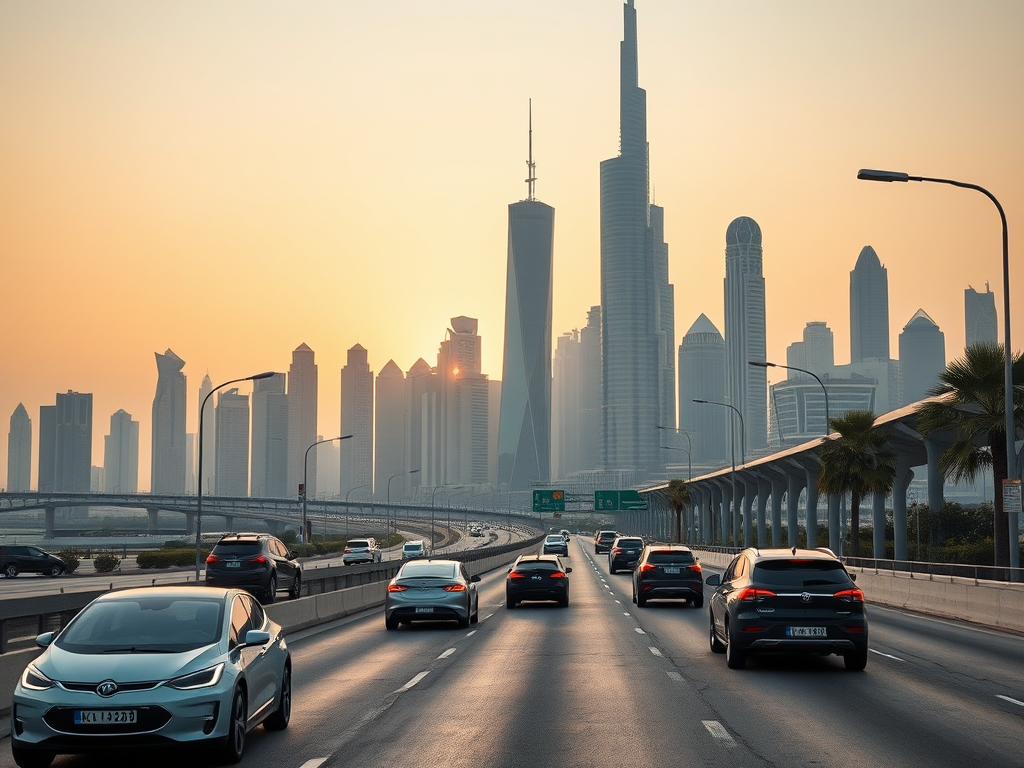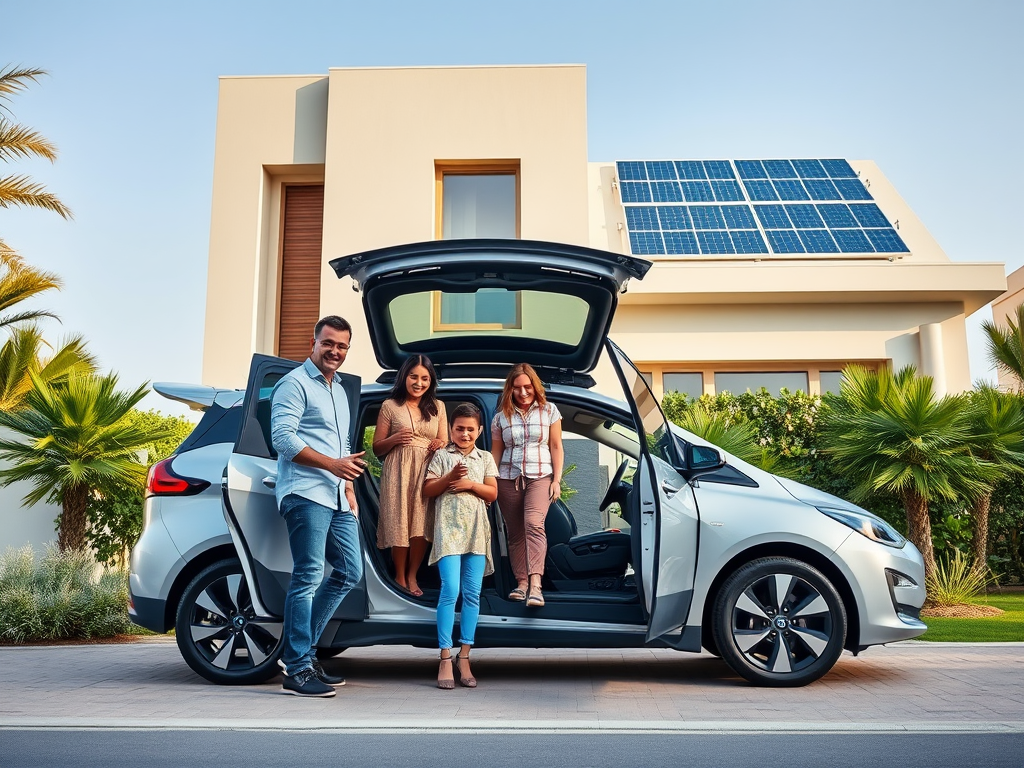The Future of Electric Vehicles in Dubai
28.01.2025

The future of electric vehicles (EVs) in Dubai looks promising, driven by a robust governmental push towards sustainability and an increasing consumer interest in environmentally friendly transportation. With ambitious plans to transform the city into a global hub for EVs, Dubai aims to reduce carbon emissions and modernize its public transportation infrastructure. The integration of EV technology aligns well with the UAE’s Vision 2021, focusing on sustainability and innovation. As a result, it’s essential to explore the various factors that will shape the EV landscape in Dubai over the coming years.
Government Initiatives and Policies

The Dubai government has launched several initiatives to promote electric vehicles, emphasizing both environmental sustainability and a shift in economic dependencies. One prominent example is the Dubai Clean Energy Strategy 2050, which aims for 75% of all vehicles on Dubai roads to be powered by alternative energy sources by 2040. In addition, the government offers various incentives to encourage EV adoption:
- Free registration and licensing for electric vehicles.
- Exemption from toll charges on major roads.
- Substantial rebates on the purchase price of EVs.
- Establishment of extensive charging infrastructure across the city.
Such initiatives not only aim to decrease carbon footprints but also promote investments in advanced EV technologies. The presence of such policies exemplifies Dubai’s commitment to becoming a leader in sustainable transportation.
Infrastructure Development

The expansion of EV charging infrastructure is crucial for nurturing the adoption of electric vehicles. Dubai is actively working to set up a network of charging stations throughout the city, ensuring that EV owners have access to convenient charging options. The Dubai Electricity and Water Authority (DEWA) has revealed plans to increase the number of public EV charging stations to over 1,000 by 2025. Key areas of focus include:
- Charging stations at major shopping malls and public places.
- Dedicated fast-charging facilities along highways.
- Workplace charging solutions to encourage businesses to support EVs.
- Home charging infrastructure incentives for residents.
These developments will bolster consumer confidence, making the transition to electric vehicles not only feasible but practical across Dubai’s extensive urban landscape.
Consumer Awareness and Market Trends
As electric vehicles gain traction, consumer awareness is key to their acceptance. Various organizations and governmental entities are working to educate the public on the benefits of switching to EVs, including reduced maintenance costs and improved air quality. Trends suggest a growing interest in EVs among residents, driven by advancements in technology and more eco-conscious consumer behavior. Several factors are influencing this market trend:
- The increasing availability and variety of electric vehicle models.
- Improved battery technologies leading to longer ranges.
- Economic factors such as rising fuel prices and increasing environmental taxes on gasoline vehicles.
- Government incentives that make EVs more appealing financially.
As a result, it’s anticipated that electric vehicle sales will continue to grow dramatically, positioning Dubai as a significant market for EV manufacturers.
The success of electric vehicles in Dubai heavily relies on collaboration between the government and private sector companies. Several partnerships have emerged, with car manufacturers investing heavily in local EV production and research. Companies are focusing on various areas to foster EV adoption:
- Developing innovative electric car models suited for the Arabian market.
- Partnering with tech firms to create smart charging solutions.
- Researching renewable energy sources for sustainable charging.
- Offering attractive leasing and finance options to lower entry barriers.
This synergy between public policies and private investments creates a robust ecosystem for electric vehicles, ensuring their successful integration into the transportation network of Dubai.
Conclusion
The future of electric vehicles in Dubai is bright, fueled by government initiatives, substantial infrastructure investments, and growing consumer interest. With an array of incentives in place and a deeply ingrained vision for sustainability, it’s evident that electric vehicles will play an increasingly important role in Dubai’s transportation landscape. The inevitable upward trend in adoption rates, coupled with strategic collaborations between public and private sectors, positions Dubai as a frontrunner in the global electric vehicle market. As these developments unfold, Dubai not only aims to reduce its carbon footprint but also sets a precedent for sustainable living in urban environments worldwide.
Frequently Asked Questions
1. What are the benefits of driving an electric vehicle in Dubai?
Driving an electric vehicle in Dubai offers numerous benefits, including lower operating costs, government incentives like free registration and exemptions from toll charges, and a reduced environmental impact compared to traditional gasoline vehicles.
2. How many EV charging stations are expected to be in Dubai by 2025?
Dubai aims to have over 1,000 public EV charging stations by 2025, significantly enhancing its electric vehicle infrastructure.
3. What is the Dubai Clean Energy Strategy 2050?
The Dubai Clean Energy Strategy 2050 is an initiative aiming to make 75% of all vehicles on Dubai’s roads powered by alternative energy sources by the year 2040.
4. Are there specific incentives for businesses to promote EV adoption?
Yes, businesses can benefit from the establishment of workplace charging solutions and various government incentives aimed at encouraging them to transition to electric fleets.
5. How is consumer awareness being improved regarding EVs?
Consumer awareness regarding electric vehicles is being improved through educational campaigns organized by governmental bodies and partnerships with organizations focused on sustainability and green technology.